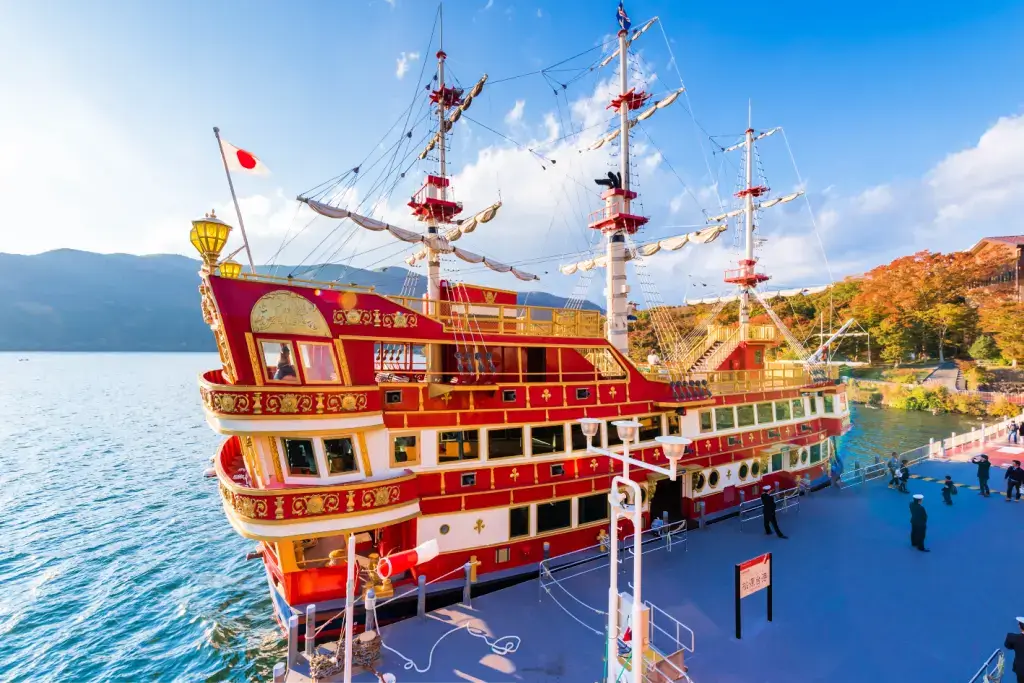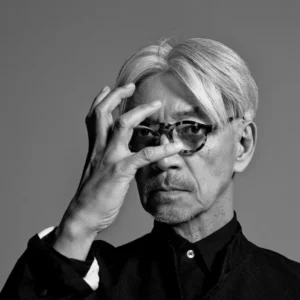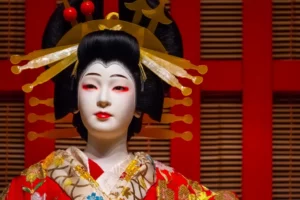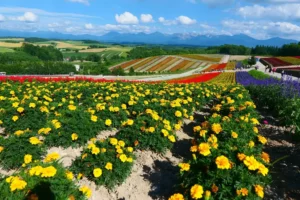Discover Hakone, where natural beauty, history, and culture come together. From a checkpoint on the Tōkaidō route to its transformation into a summer retreat, Hakone has much for you to enjoy. Explore the famous shrine, learn at a historical checkpoint, take in the views from the ropeway, and go on an adventure at Owakudani!
Table of Contents
ToggleWhere is this resort town?
Hakone, located about 90 minutes from Tokyo in Kanagawa Prefecture, is famous for its hot springs, views of Mt. Fuji, and active volcanoes. It served as one of the 53 checkpoints on the Tōkaidō route during the Edo period and later became a summer resort during the Meiji era. Today, the area offers a mix of natural beauty and tourist attractions, including hot spring spas, outdoor activities, and art museums.
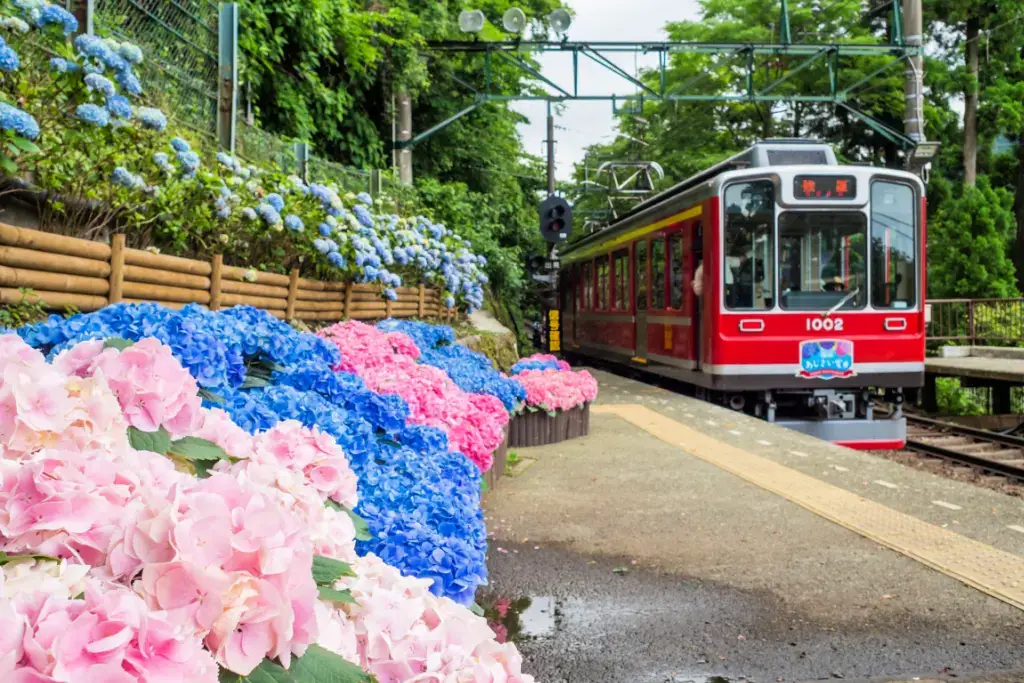
Moreover, visitors typically start their journey in Hakone-Yumoto, the main entry point. Gōra is another key destination, home to attractions like the Open-Air Museum and Yunessun. Moto-Hakone on the southern shore of Lake Ashi offers a quiet village atmosphere. Whether enjoying hot springs or exploring volcanic landscapes, this place provides history, culture, and natural wonders for visitors to experience and enjoy.
Hakone Shrine
At the base of Mount Hakone by Lake Ashinoko, Hakone Shrine is for its red torii gates. Visitors can walk from the torii gate through the forest to the main shrine building. The shrine has also been a destination for military commanders, travelers seeking safe journeys, and worshippers from all over the country. The shrine also hosts various events, including the Ashinoko Summer Festival Week, featuring a beautiful fireworks display.
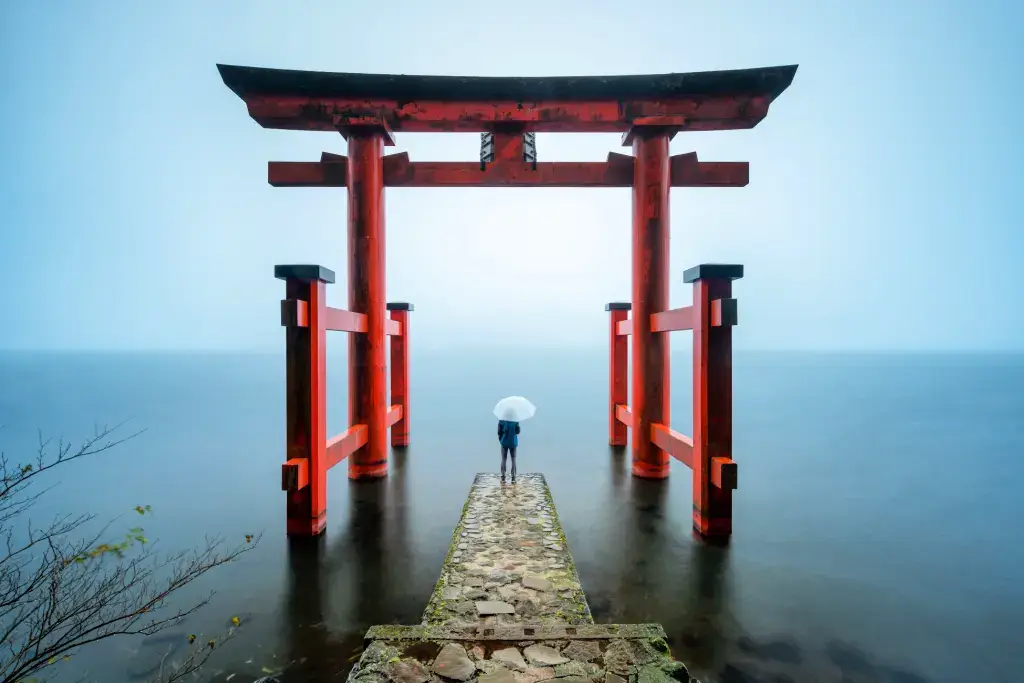
Moreover, the Torii of Peace, a prominent red gate standing over Lake Ashinoko, is the shrine’s highlight. You can also climb the steps to the main shrine and pray for blessings. The shrine also has many legends and traditions, like the story of the nine-headed dragon and the purification fountain. Whether admiring the beauty or seeking comfort, Hakone Shrine offers a memorable experience for all its visitors.
Hakone Checkpoint
The Hakone Checkpoint, also known as Hakone-Sekisho, was crucial during Japan’s Edo period as a checkpoint along Lake Ashi to control travel under the Tokugawa Shogunate’s rules. Established in 1619, it was one of Japan’s largest and most significant stations, aiming to control the movement of goods and people. Travelers also needed approved passports, and attempts to skip them were met with severe penalties.
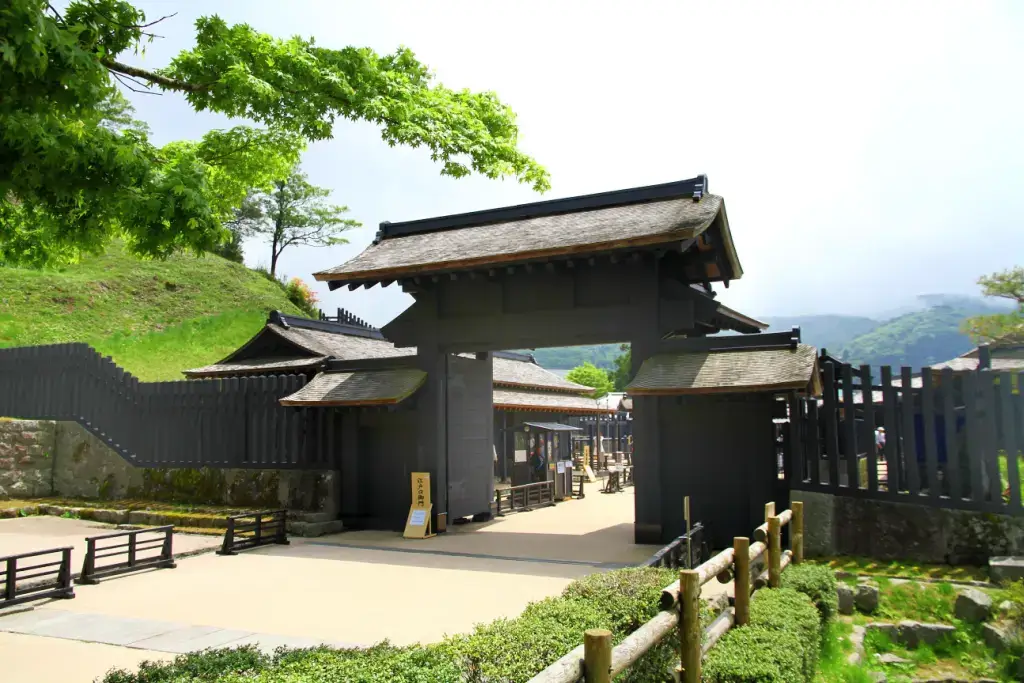
In recent years, efforts have been made to preserve the checkpoint’s historical significance. Today, there is a museum that tells its history through exhibits and artifacts. Visitors can also learn about the regulations, view passports, and hear stories like elephants passing through the checkpoint. The new checkpoint, completed in 2007, allows visitors to experience its original form.
Hakone Ropeway
The Hakone Ropeway allows visitors to see the area’s natural beauty. As one of the most ridden ropeways, it is a journey through beautiful landscapes. Riding the ropeway allows travelers to see the steaming vents of Owakudani, which show the earth’s raw power and beauty. Generally, the sight of sulfuric smoke rising from the valley floor creates a powerful view.
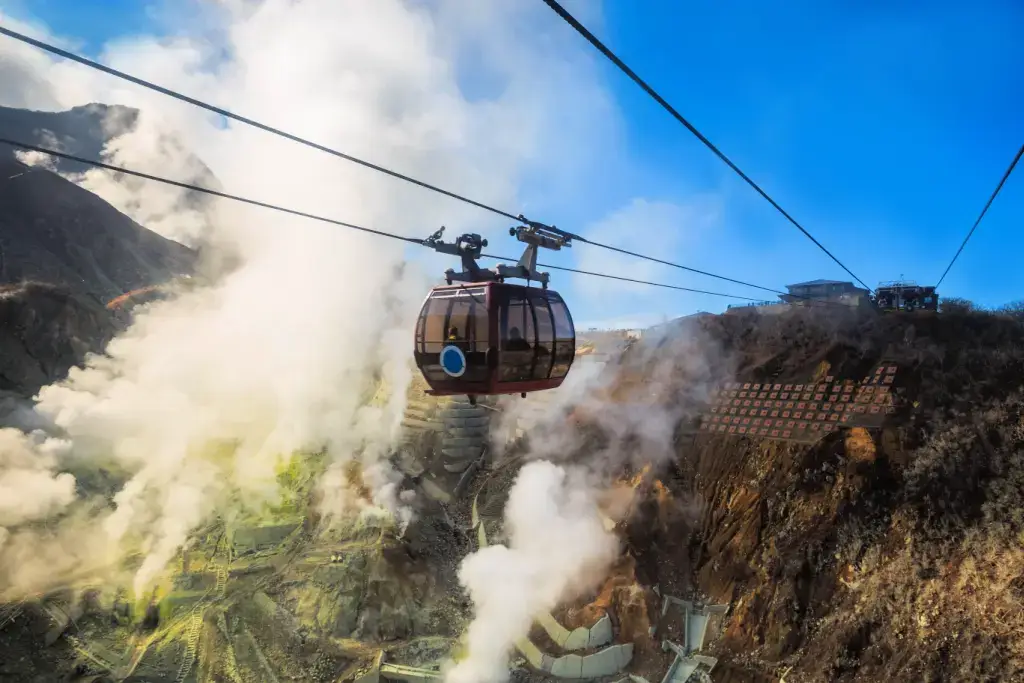
All in all, the ropeway offers panoramic views of Lake Ashinoko and Mt. Fuji. From the shores of Lake Ashinoko to Japan’s tallest mountain, passengers can enjoy breathtaking views that highlight the region’s natural splendor. The Hakone Ropeway undoubtedly promises a memorable experience for travelers exploring this famous destination in Japan.
Are you looking for unique snacks from Hakone? Check out Sakuraco! Sakuraco delivers traditional Japanese snacks, teas, sweets, and snacks from local Japanese makers directly to your door so you can enjoy the latest treats directly from Japan!
Owakudani
Owakudani is a famous volcanic area in the region, formed over 3,000 years ago by a volcanic eruption. Visitors can see active sulfur vents, hot springs, and stunning views of Mount Fuji on clear days. The area is famous for its black eggs, which are boiled in the hot spring waters. According to folklore, they can extend one’s life by seven years due to a chemical reaction that turns their shells black.
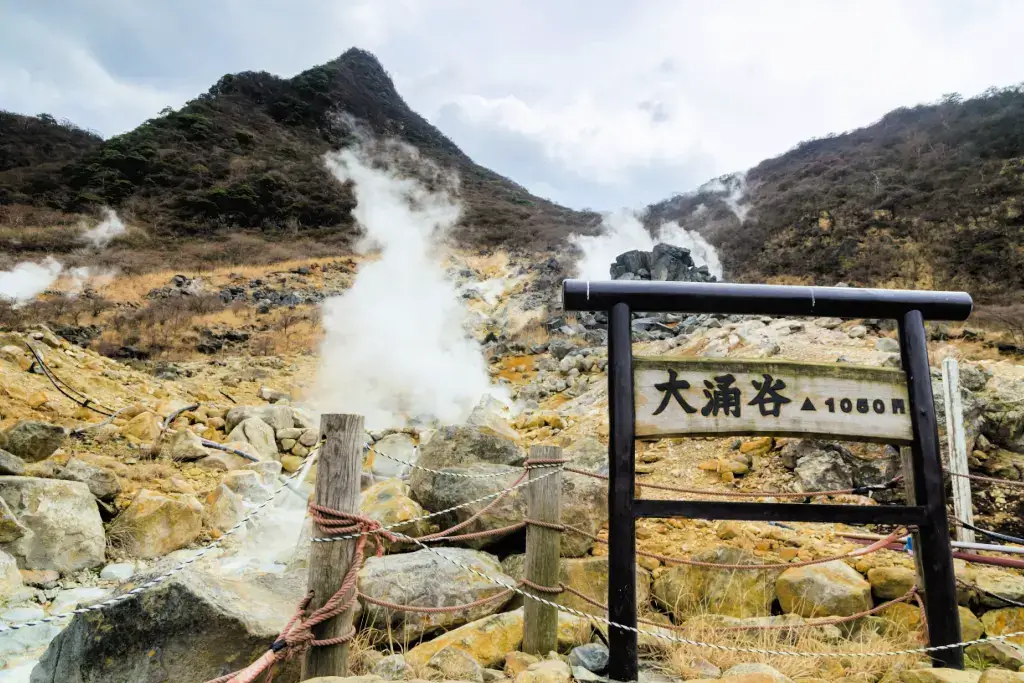
To reach Owakudani, travelers journey via train, cable car, and ropeway from Hakone-Yumoto Station. After arriving at Owakudani Station, a short walk leads to the central volcanic zone, where visitors can see steam vents and bubbling pools. However, the gases from these vents give off a strong smell, which is why there is no vegetation in the area. Don’t worry about safety when visiting; these gases are monitored closely!
Why should I visit Hakone?
Overall, you should visit the area for its natural beauty, cultural heritage, and relaxing hot springs. Just a short journey from Tokyo, Hakone offers stunning views of Mount Fuji, volcanic landscapes, and a rich history dating back to the Edo period. Whether exploring the historic Hakone Checkpoint, enjoying yourself at the Hakone Shrine, or riding on the Hakone Ropeway, there’s something for everyone here!
The area provides the perfect escape from city life with its hot springs and many outdoor activities. Experience the beauty of Hakone, where relaxation and adventure await you! Have you ever been to Hakone? Where did you go? Let us know in the comments below!

